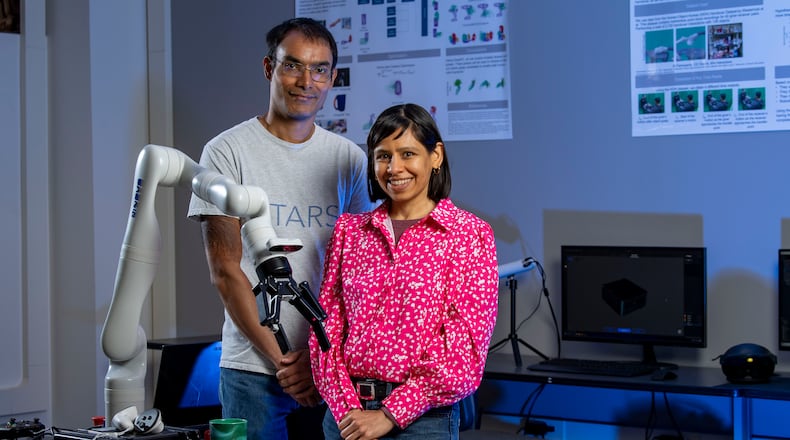The research looks at recycling manufacturing and how recycling plants could make small products from broken but intact large metal objects, like refrigerators or washing machines.
“When a washer or refrigerator breaks down, we take it to a metal recycling facility, where traditionally they’re shredded on site into scrap that gets shipped overseas for processing,” Natasha Banerjee said. “What we propose is that if large portions of those are intact and usable, workers onsite at the recycling plant can make small products from them. Why not fabricate onsite, keeping manufacturing in the U.S. and in the local community?”
Natasha Banerjee said the idea is that a manufacturer could accept a broken washing machine or refrigerator and use the metal to make something else.
She said she and Sean Banerjee both own older cars and frequently struggle to find parts. This model could help alleviate this problem, she said.
The project could help revive small manufacturing in the U.S., according to the Banerjees, who are married. Natasha Banerjee said the project will explore how small-scale manufacturing could use recycled materials and how it could scale for business.
The plant employees would be trained as “recyclofacturers,” using artificial intelligence, virtual reality headsets and robots to help with assembly and welding, Natasha Banerjee said.
Wright State is leading the research and collaborating with an economist from Chapman University, a sociologist from the University of Lynchburg, a roboticist and a human factors expert from Santa Clara University, community leaders in recycling and manufacturing and members of the public.
Wright State administrators said this is the second-largest National Science Foundation research grant the university had ever gotten.
The project also includes an education and workforce development component, according to Wright State. Courses will introduce people to the new tools and techniques, while Wright State students will gain hands-on experience through research assistant positions starting in the spring of 2026.
“Our goal is to have a pathway for interested small businesses at the end of the four years,” Natasha Banerjee said.
Sean Banerjee noted that this year, only Virginia Tech and Michigan State — along with Wright State — received National Science Foundation Future Manufacturing Research Grants focused on cyber-technologies.
“That puts us on the same playing field as those two universities,” he said.
About the Author

